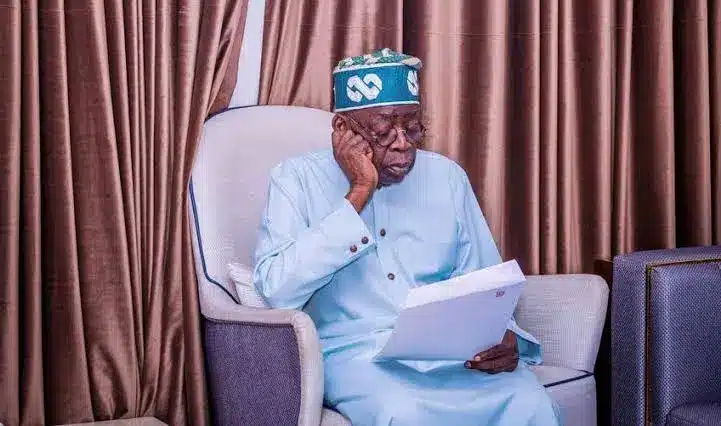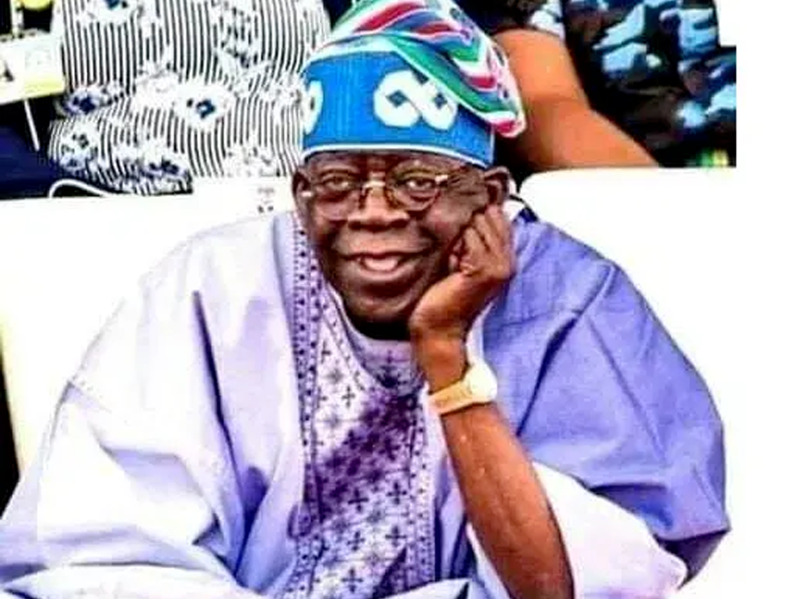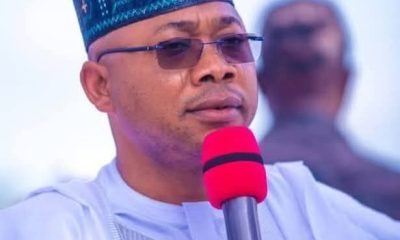Opinion
Curbing Grading Bias In Tertiary Institutions

Indices have shown in recent years,how the credibility of examinations in Nigeria’s higher institutions has come under increasing scrutiny and doubts.
To a great extent, the skepticism is as a result of allegations of grading bias, and manipulations by lecturers.
Before now, all eyebrows seemed to be against students. They are perceived to be the only culprits in examination malfeasances, seeing they assume a role of the subordinates, and are mostly involved in cheating during exams, buying grades and other related malpractices.
However, as technology advances, particularly with the invention of computer-based tests (CBT) that allow for students, to write examination online and have their results uploaded via the same means, it is increasingly becoming necessary, to shift the searchlight against examination malpractices to the lecturers.
I speak today as a lecturers, who was once a student, but victimized through grading bias.
Years ago, I had reasons to join a host of others, to register our grievances about how our department handled the collation of our final result— the collations were taking longer than necessary, and many of my course mates were eager to go for NYSC deployment.
Long story made short, some of us who made that journey to school were victimized. Our grades were reduced, and as such we have continued to live with this trauma.
It is important I tell you that, there is an opportunity to ‘call for one’s papers’ in most Nigerian universities, however, such avenues are nothing but means for further frustration and victimisation of students. If anyone has ever scaled such rigour, then the percentage of those who have come out triumphant must be very infinitesimal.
In most of the cases, students who register dissatisfactions about their results or grades are humiliated and marked down during the remarking process.
Because of nativity that comes with adolescence, most students who have such issues prefer to be quite about it. They are spiraled into silence, knowing doing otherwise could spell doom.
It is not out of place, to say most of the lectures in our tertiary institution have assumed the position of the biblical principalities and powers. Many wield so much powers that, they can do and undo just anything, especially as it concerns students’ academic performances.
It is unfortunate that,an issue as mundane and irrelevant to academics as sex, is used against some unwilling students— a lecturer wants to take an undue advantage of a female student, before such student passes his course at all, or with good grade. What a sacrilege!
To address these challenges and enhance transparency and fairness,there is need for shifting from traditional pen-on-paper examinations to Computer-Based Testing (CBT) across Nigerian universities and colleges:
Curtailing lecturers’ manipulations, is paramount in the quest for academic transparency and integrity in Nigeria. The world had since moved from where most of our institutions now dwell. The days of submitting your examination scripts to a drug or alcohol-influnced lecturer are over. We must embrace the ease, speed and accuracy that technology accords.
With manual grading, the risk of biased marking, grade alterations, and even solicitation of favors (monetary or otherwise) is significantly higher. CBTs remove this vulnerability by automating the marking process for objective questions, reducing human interference, and ensuring that results are based purely on student performance.
The detection of the hitches in 2025 Unified Tertiary Matriculation Examination (UTME) organized recently by Joint Admissions and Matriculation Board (JAMB) is a testament to the fact that, our old grading patterns are indeed archaic and suppressive. Aside the technical glitches, which are easily detectable and amendable, JAMB deploying CBT method remains the best.
Furthermore,for our institutions to score high in objectivity and fairness, candidates must be scored based on definitive algorithms, leaving little to no room for subjectivity– this can only be made possible by CBT.
Here, all students are assessed under the same conditions, and the same grading standards are uniformly applied. This gives equal opportunity, or a level playing field, where students’ efforts are the sole determinants of their grades, thereby restoring faith in the integrity of academic assessments.
While computers may not necessarily be able to take over all human activities, we must accept the fact that, they enhance productivity and the management of time.
No matter how smart and proficient a lecturer could be, the sight of over a hundred booklets of students during examination sends a wave across his/her spine. It is certain s/he wouldn’t be able to mark all scripts with the same zest, objectivity and speed.
Traditional examinations require a long marking period, during which scripts are often lost, misgraded, or intentionally manipulated.
In contrast, CBTs offer instant or much faster results, giving no room for tampering after submission. This rapid turnaround not only benefits students but also reduces the administrative workload on academic departments.
Nigerian institutions must embrace a paradigm shift, if they hope to remain competitive and prepare students for the demands of the modern workforce
Moving fully to CBT is not without its challenges. Infrastructure deficits, erratic power supply, and digital divide are real issues in many Nigerian institutions.
However, these challenges are surmountable. Government investment, public-private partnerships, and phased implementation can bridge the gap.
Moreso, while objective questions are easier to grade via CBT, strategies must be developed to accommodate essay-type assessments and practicals. Hybrid models that incorporate both automated testing and supervised evaluations could serve as a balanced approach during the transition phase.
Let me close by emphasising that transitioning from pen-on-paper examinations to CBT in Nigerian higher institutions, is not just a technological upgrade — it’s a fundamental reform to restore integrity,fairness and transparency in the academic system. It is an easy avenue for the elimination of opportunities for lecturers manipulations.
CBT stands as a crucial tool in transforming Nigeria’s education sector into one that truly rewards merit and prepares students for a digital future.
What stops institutions, including JAMB from conducting CBTs where students results are displayed immediately the SUBMIT button is clicked?
Okunlegbe John T is a lecturer and a Pastor. He writes from Ilorin, Kwara state.
Opinion
Tinubu’s Dark Mercy: How Presidential Pardon Turned Justice Into A Joke

By Ademola Adekusibe
Something snapped in Nigeria yesterday. It wasn’t just the announcement that President Tinubu had pardoned 175 convicts; it was the final confirmation that in this country, crime no longer carries consequence. It was the state’s open confession that Nigeria’s justice system is now a casino, and those with connections always win.
Let’s start with one name that should haunt every soldier who ever wore the uniform: Major Suleiman Alabi Akubo. In 2008, a military court didn’t just find him guilty; it laid bare the horror of his betrayal. The man stole 7,000 weapons from the Nigerian Army, weapons meant for the nation’s defense, and sold them to militants who turned them on his own comrades. Soldiers died. Innocent Nigerians died. The country bled. And the General Court Martial, in its rare moment of courage, sentenced him to life imprisonment.
That was supposed to be justice. That was supposed to be a warning that no one, no matter how decorated, could betray the flag and walk free. But now, the same Nigeria whose sons were buried by bullets he sold has opened the prison gates and called it “presidential mercy.” Mercy for treason. Mercy for blood money. Mercy for a man whose greed armed killers and destabilized the nation.
If this is mercy, then what do we call justice?
And then there’s Maryam Sanda, a woman who, by her own actions, turned her matrimonial home into a slaughterhouse. The night she killed her husband wasn’t an accident; it was a progression of rage, five failed attempts before the fatal strike. The court found her guilty of culpable homicide and sentenced her to death by hanging. Nigerians thought it was closure. The law had spoken. But in this new Nigeria, even murder has an escape route, a back door guarded by sympathy, privilege, and presidential benevolence.
Today, she walks free. Her victim remains six feet below, voiceless, silenced forever. Is this how we honour the dead? By setting their killers free in the name of “mercy”? If Maryam Sanda deserves pardon, then what message are we sending to every man or woman enduring domestic violence? That if their abuser kills them, justice can later be undone with a signature?
And this isn’t even about two names. The rot runs deeper. Among those granted clemency were illegal miners, men who have turned parts of Zamfara and Niger State into killing fields. They were handed over to a politician, yes, a politician, as though the state were transferring cattle, not convicts. Do we even realize how insane that sounds?
Then there’s the drug traffickers, the billion-naira fraudsters, and bribe-takers like Farouk Lawan, once caught stuffing $500,000 into his agbada like a man packing sin into his conscience. They, too, found mercy. While ordinary Nigerians sit in jail for stealing yams, the powerful steal nations and go home with presidential blessings.
What sort of country pardons a man who sold weapons to militants but keeps forgotten prisoners locked up for years without trial? What manner of justice rewards murder with mercy but starves the poor of fairness? If clemency is now a luxury reserved for those whose crimes shook the nation, then we have entered the age of moral bankruptcy.
This isn’t compassion. It’s corrosion. It’s the state officially declaring that morality is negotiable, that you can destroy lives, arm terrorists, betray your country, and still find redemption as long as the corridors of power recognize your name.
And perhaps the cruelest part? The families of the victims, the widows, the orphans, the soldiers who died holding their rifles against bullets sold by Akubo, were not even consulted. Justice wasn’t just denied; it was mocked.
So yes, call it “Presidential Pardon” if you must, but let’s say what it truly is: a betrayal of every honest man who ever stood for something in this country. A message to every Nigerian that the law is not a moral compass, it’s a privilege card.
Tomorrow, when another officer sells arms to insurgents, when another wife kills her husband, when another politician embezzles billions, and we ask, “Why are people this reckless?” the answer will stare us in the face: because the system rewards the wicked and excuses evil when it’s done in expensive English.
This wasn’t mercy. This was moral suicide.
Credit: The Yoruba Times
Opinion
Nigeria @65: A Nation At a Crossroad Between Celebration, Reflection

By Alao Adamadamosi Sunday, arpa
As Nigeria marks its 65th year of independence, citizens and leaders are grappling with a complex question: Is this an anniversary to celebrate, or a moment for sober reckoning?
Today, Nigeria celebrates 65 years of freedom from British colonial rule. The day is marked by a national holiday and is traditionally a time for parades, cultural shows, and presidential addresses .
However, the festivities are set against a backdrop of deep-seated challenges, prompting a national conversation on the very essence of the nation’s progress.
In his 65th Independence Day address, President Bola Tinubu struck a resolutely optimistic tone, declaring that the “worst is over” for Africa’s most populous nation.
He defended his administration’s contentious economic reforms, including the scrapping of fuel subsidies and the unification of foreign exchange rates, describing them as painful but necessary steps to “reset” the economy.
The president presented a suite of economic indicators to bolster his claim that the seeds of these reforms are now “bearing fruits”:
· Economic Growth: The second-quarter GDP grew by 4.23%, the fastest pace in four years.
· Falling Inflation: Inflation has declined to 20.12% in August, the lowest in three years, though it remains high.
· Trade Surplus: The country has recorded five consecutive quarters of trade surpluses, selling more to the world than it buys.
· Rising Reserves: External reserves have climbed to $42.03 billion, the highest level since 2019 .
This narrative of progress was echoed by government supporters. The Governor of Ogun State, Dapo Abiodun, spoke of “the enduring spirit of unity, resilience, and hope,” urging citizens to “look forward with optimism”.
Despite the official optimism, a chorus of critics and stark data points to a far more challenging reality for millions of Nigerians. A poignant editorial framed the nation’s condition as one of “independence without nationhood,” arguing that the dream of a unified, prosperous nation remains elusive 65 years on.
The challenges are profound:
Deepening Poverty: A World Bank report noted that over 54% of Nigerians live in poverty, with the rate soaring to 75.5% in rural areas . Other estimates suggest over 129 million Nigerians—more than half the population—live below the poverty line.
· Staggering Infrastructure Deficit: The country requires an estimated $3 trillion over the next 30 years to close its infrastructure gap. Notably, Nigeria has the largest electricity access deficit in the world, with 43% of its population (85 million people) lacking access to grid electricity.
· Ongoing Security Challenges: The nation continues to battle terrorism, banditry, and kidnapping, ranking sixth in the 2025 Global Terrorism Index . While the government claims security is improving , these threats remain a daily reality for many.
· A “Brain Drain”: Reflecting a loss of confidence in the system, data shows a significant increase in migration, with over 3.6 million Nigerians emigrating between 2022 and 2023 alone.
This divergence between official statements and public perception was symbolized by the federal government’s decision to cancel the official Independence Day parade, a move some interpreted as an acknowledgment that all is not well.
The cancellation of celebrations, as interpreted by cleric Prophet Sam Ojo, is a sign that “Nigeria needs healing”. This sentiment resonates with those who believe the path forward requires more than economic metrics.
Many analysts argue that Nigeria’s fundamental ailment is structural. The country has been attempting to govern its vast diversity of over 250 ethnic groups through a “largely unitary system” that stifles development and fuels resentment among regions feeling exploited or marginalized.
The solution, they propose, is an urgent return to true federalism—devolution of power to the constituent units to foster competition, accountability, and a sense of belonging .
As Nigeria steps into its 66th year, the dual narrative of progress and pain defines its independence anniversary. The government points to macro-economic green shoots, while citizens grapple with the daily challenges of survival.
The nation stands at a crossroad, and the most pressing task may be to bridge the gap between statistical recovery and the lived experience of its people, forging not just an independent state, but a true nation where every citizen can find “purpose and fulfilment” .
As we mark another October 1st, may this not just be a ceremonial celebration but a reminder of the work still ahead for leaders to act with integrity and for citizens to demand accountability.
Opinion
Benue Killings: Is This The President You Endorsed? (OPINION)

As Nigeria reels from yet another wave of bloodshed in Benue State—where recent gunmen attacks left more than 150 villagers dead, many burned alive in their homes—the nation’s attention turns, inevitably, to the man in whose name we voted: President Bola Ahmed Tinubu.
The unfolding tragedy in Benue is not an isolated outbreak of violence, but rather a grim symptom of a broader malaise: a leadership marked by performative gestures, political expediency, and a troubling paucity of empathy.
ABSENCE OF EMPATHY: THE MOKWA FLOOD AS PRELUDE

In late May 2025, torrential rains unleashed catastrophic flooding in Mokwa, Niger State. Over 200 lives were lost, hundreds of homes were submerged, and critical infrastructure—roads, bridges, markets—was swept away.
Yet, when President Tinubu’s condolences were needed most, it was Vice‑President Kashim Shettima who sat before distraught survivors, pledging federal relief on the President’s behalf.
Despite announcing a ₦2 billion reconstruction fund and dispatching 20 food‑loaded trucks, Mr Tinubu himself remained at his desk in Abuja, delegating his presence to envoys rather than offering the solace of personal solidarity. This physical absence was more than mere logistics; it set a tone.
When the country is in pain, its leader’s first act of compassion should be to stand among the afflicted. Instead, Nigeria witnessed a head of state whose body language signaled distance, if not detachment.
President Tinubu’s detachment in the aftermath of the Mokwa flood was not an isolated occurrence, but rather a continuation of an unsettling pattern of presidential absence during national tragedies.
One of the earliest examples came in June 2023, when a boat accident on the Niger River in Patigi, Kwara State, claimed the lives of over 100 wedding guests.
The tragedy shocked the nation and drew widespread media attention, yet President Tinubu neither visited the victims’ families nor made a physical appearance at the scene. His condolences came via a written statement, which many described as impersonal and formulaic.
Similarly, in September 2023, when flooding displaced thousands in Bayelsa and Kogi States, President Tinubu once again failed to show up in person.
Despite mounting public pressure and calls from local leaders for federal presence, the President remained in Abuja, directing federal agencies from afar and relying on surrogates to visit displaced persons.
These instances—prior to the Mokwa flood—suggest that the President’s current pattern of governance tends to avoid the emotionally resonant act of being present.
POLITICAL CALCULUS OVER HUMAN LIVES

While entire communities in Mokwa and Benue were grappling with loss, the President and his All Progressives Congress (APC) were already pivoting toward re-election strategising.
On May 22, 2025, barely weeks after accepting the mantle of national mourning, the APC officially endorsed Tinubu as its sole candidate for the 2027 presidential race—a ceremony replete with promises of economic continuity and reform.
Yet never once did the party pause to address the urgent insecurity that was devouring farms, markets, and families.
The optics are stark: while children and the elderly perished in unnamed villages, APC governors draped themselves in campaign paraphernalia, unaware—and perhaps uncaring—that their mandate to protect was being squandered in favor of political theater.
EMPTY WORDS ON THE ASHES OF BENUE

When gunmen descended on the Yelewata community in Guma LGA, sparing neither women nor children, President Tinubu’s preferred mode of engagement was a scripted condemnation via press statement.
“I will adjust my schedule to visit Benue people on Wednesday,” he declared, promising a personal visit to assess the damage.
The charred husks of homes and commerce in Benue stand as a mute reproach to a leader whose words betray no trace of sorrow in his countenance.
An authentic leader would have gone beyond televised sound bites, immersing himself in the grief of survivors—the orphaned children, the widows, the displaced—bearing witness to the human cost of insecurity under his watch.
GOVERNORS’ ENDORSEMENTS: A PARADOX OF LOYALTY

Perhaps the most poignant indictment of Tinubu’s presidency is the chorus of APC governors rallying behind him for a second term.
In the same breath that they praise his “economic reforms,” they ignore the fact that inflation has soared past 23 percent, that food security is now a privilege rather than a right, and that Nigerians no longer feel safe in their own communities.
This display of political loyalty, untempered by accountability, forces a question: when did governance become synonymous with uninterrupted tenure rather than service to the people?
At what point did infrastructure ribbon‑cuttings eclipse the imperative to safeguard lives?
THE BURDEN OF CHOICE

When Nigerians cast their votes in February 2023, many yearned for a president who would not only talk about reform but also personify compassion, decisiveness, and a hands‑on approach to crisis.
Instead, two years into his term, President Tinubu has cultivated an image of a distant executive—adept at policy pronouncements and partisan maneuvering, yet reluctant to walk the ground where suffering is most acute.
As the smoke still rises from the ruins of Yelewata, and as survivors grapple with loss, the nation must reckon with a disquieting reality: the leader we endorsed appears more committed to cementing political power than mending broken communities.
In the balance between campaigning for a second term and delivering on the most basic duty of governance—protection of citizens, the latter has been glaringly neglected.
Is this the president you endorsed? As Benue burns, and as the echoes of unfulfilled promises linger, this question demands not just a simple yes or no, but a collective reckoning on the values and expectations that guide our democracy.
Credit: Pulse (17 June 2025)
-

 News12 months ago
News12 months agoKogi Police Prohibits, Warns Against Use of Vehicles With Covered Number Plates
-

 News12 months ago
News12 months agoHow We Discovered Drugs In The Residence of Kwara Senator Accusing Us of Corruption. – NDLEA
-

 News2 years ago
News2 years agoKogi Govt. Commences Staff Audit For State Civil Servants Dec. 5th
-

 Politics2 years ago
Politics2 years agoKOGI2023: AA’s Candidate, Braimoh, Promises To Regenerate State’s Economy, Receives Decampees
-

 News2 years ago
News2 years agoPDP Will Expel Wike At Appropriate Time – Bwala
-

 News3 years ago
News3 years agoWAEC Releases 2022 WASSCE Results
-

 Solicited2 years ago
Solicited2 years agoYAHAYA BELLO: The Generalissimo!
-

 News3 years ago
News3 years agoSen. Smart Adeyemi Set To Kick-off N250M Empowerment Programs In Kogi West
















